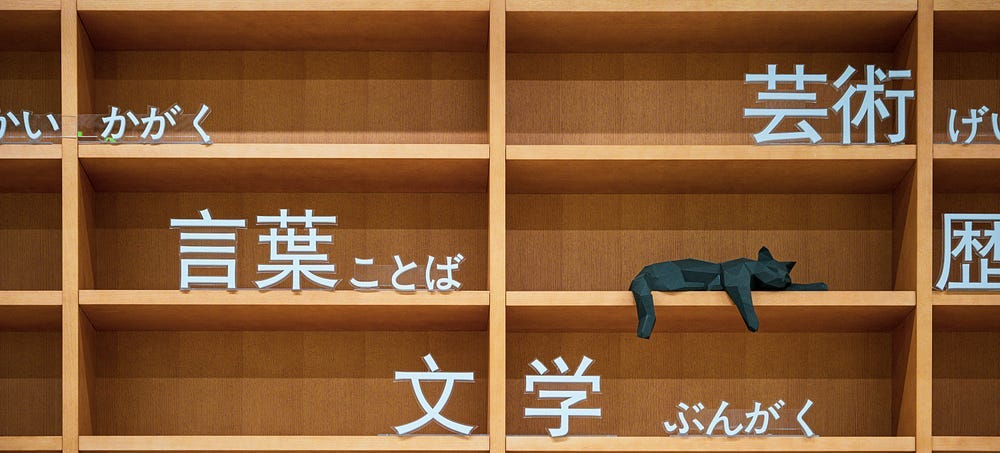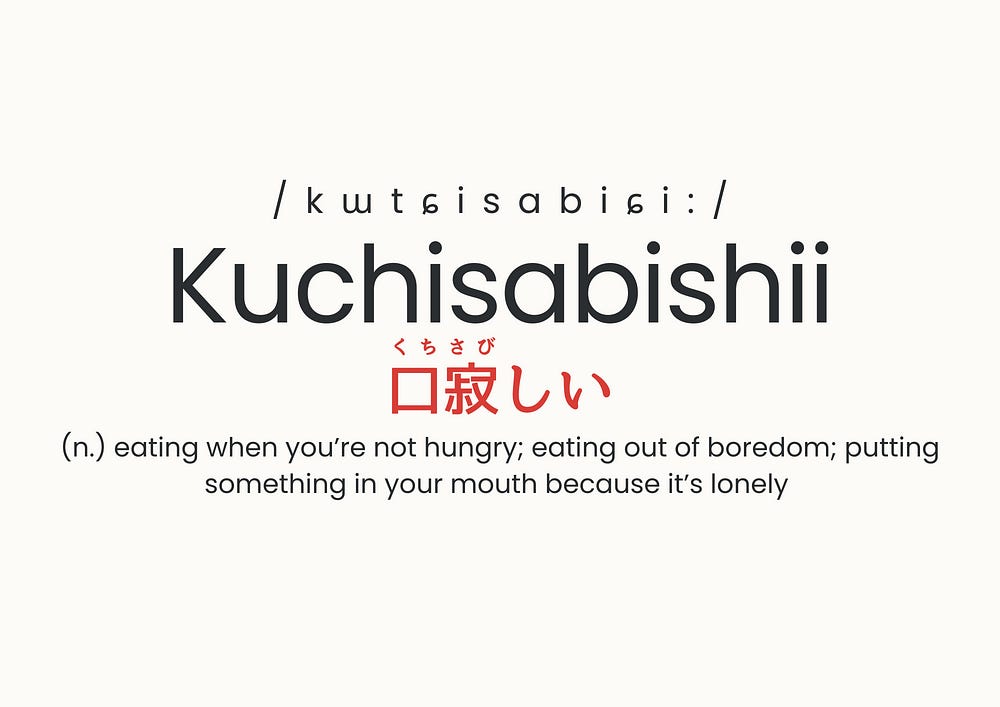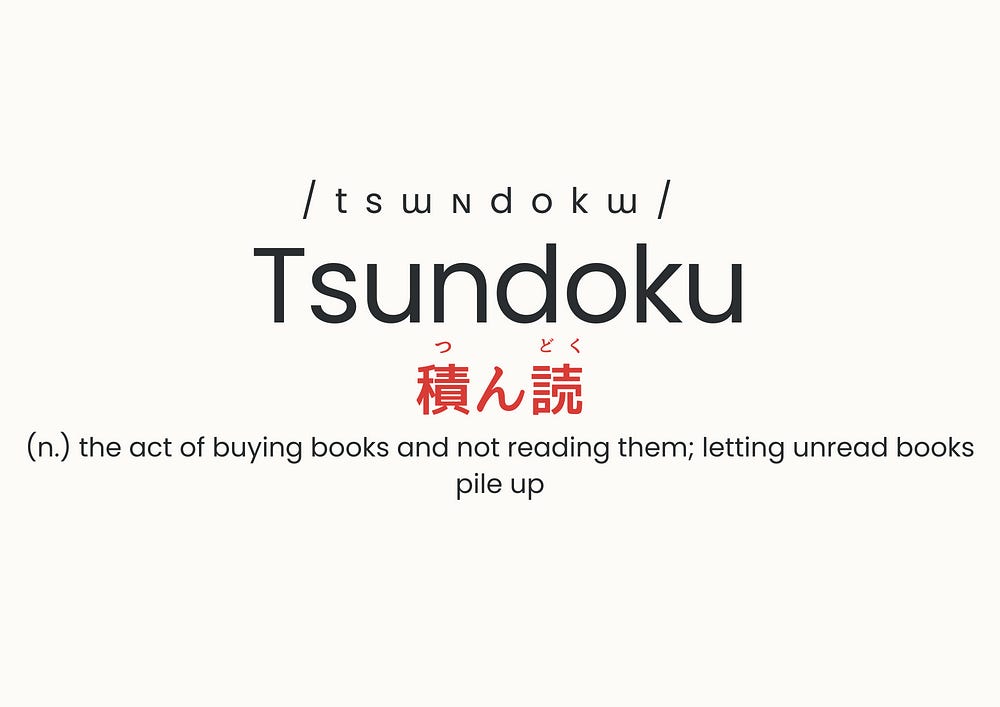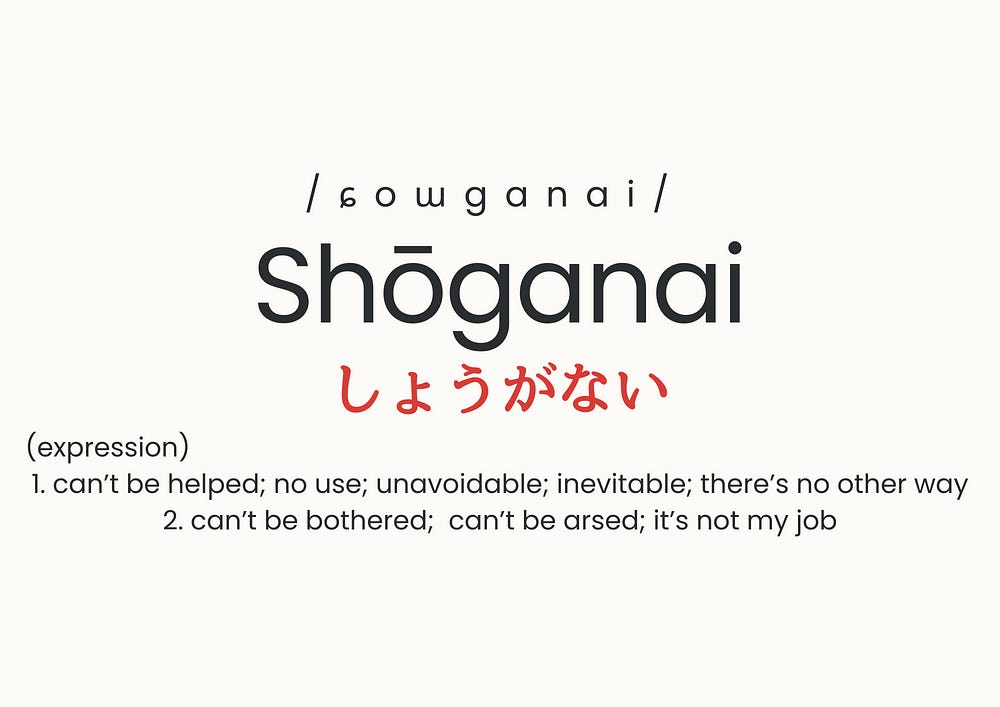“Untranslatable” Japanese Words English Actually Needs
There are concepts in Japanese that simply don’t translate directly into English—but they should.

I’m actually kind of hesitant to write this because, as a linguist, I don’t want to spread the myth that there are any words in any language that are “untranslatable.” Usually, these articles fail to convey to their readers that English would take an entire sentence to explain what other languages can do in a word or phrase.
Sometimes, it’s simply because of how the language works. For example, German uses many more compound words than her sister language across the English Channel. Sure, English could borrow German’s Backpfeifengesicht. It’s literally slap in the face + n (a genitival interfix, like the n in Panamanian or the o in speedometer) + face. But we can already say someone has a slappable face in English, and our conversation partner will probably still conjure up an image of a tech billionaire in their mind all the same. (Leave a comment and let me know who you think has a Backpfeifengesicht!)
Other times, it is genuinely a word that can capture a feeling we can’t easily convey in English. Like in French with:
Gourmandise — eating for pleasure; the love of good food
Dépaysement — both the joy and frustration of living abroad ← this is my life in Japan
Bouquiner — to read (for pleasure)
None of these ideas can be as succinctly explained in English as they can in French, but we can still translate them (I just did it).
But as a language learner I just want to show off cool new words like they were Pokémon cards. So, what are some great Japanese words on the level of Backpfeifengesicht or Dépaysement that I think English really needs?
Let’s start with my absolute favorite:
口寂しい Kuchisabishii
If you look up this word in a Japanese-English dictionary, you might get the confusingly unclear longing to have something in one’s mouth. So, let’s start with its evocative literal translation: “lonely mouth” or “mouth loneliness.” It’s not that you’re hungry. Maybe you’re bored, so you eat snacks while watching TV, or, like me, you start chewing gum without realizing it every time you get in your car. Kuchisabishii is eating out of boredom, habit, or comfort rather than hunger.
We have snacking in English, and while that usually captures the kind of food people usually eat when they’re kuchisabishii, it doesn’t really capture that feeling that even after a meal, your hand still drifts toward that bag of chips on the table. English doesn’t have a single word that captures the feeling of “I’m not hungry, but I kind of want something to munch on.” Craving might work for cigarettes or chocolate, but it doesn’t really explain why I ate a bag of stale rice crackers while watching Netflix this weekend simply because they were the only snacks in the house. I was just kuchisabishii.
Since it’s not about hunger but an emotional or psychological craving. English could definitely use a word like this, especially when “mindless eating” and “stress-eating” have such negative connotations.
“Kuchisabishii” nails that feeling of “I’m just eating because it feels nice.” Our mouths feel left out if we’re sitting there without a snack. The need for something to chew on while binge-watching.
So, what do you think? Next time you reach for a snack, could it be a little kuchisabishii?
積ん読 Tsundoku
Who hasn’t bought a book to read, only to let it sit there for months (or years)? If I made a rule for myself to only buy books after reading the ones I already have, I’d probably never buy another book again. We don’t have a word in English that captures this book-binge behavior. Sure, we have “hoarding” or “procrastinating,” but tsundoku has this literary focus that’s just so relatable. Instead of saying, “Oh, I have a pile of books I need to get to,” you could say, “I’m in tsundoku mode.”
There’s a certain optimism behind tsundoku — the belief that one day, you’ll finally get around to reading all those books. It doesn’t carry the negative connotation that “procrastination” or “book hoarding” might have. Tsundoku is a gentler way of saying, “I have a lot of books waiting for me.” It’s the literary version of buying exotic ingredients and hoping you cook with them this time.
Tsundoku shows that buying books or curating a collection is its own kind of hobby. Sometimes, just the idea of reading that new book feels rewarding, and having it nearby is comforting. It’s like you’re surrounding yourself with potential learning, wisdom, and entertainment, even if you’re not diving into all of it right away.
Tsundoku does have its downsides, though. I have two copies of multiple books, not for any sentimental reasons but simply because I forgot I already had a copy at home waiting in my pile. At the bookstore, all I could remember was wanting to read it.
But there’s something comforting about knowing I’m not alone in my book-buying habits. Being able to throw around a word like tsundoku makes it feel like part of a larger community — where people get that sometimes buying the book is just as satisfying as reading it (or maybe more, depending on your mood).
Imagine how great it would be if, next time, you’re browsing in a bookstore, you could shrug and say, “Eh, more for the tsundoku pile!” without feeling guilty. It sounds so much better than confessing, “I have a book problem.” or worse, “I have a self-control problem.”
Do you have any tsundoku stacks lying around waiting to be read?
しょうがない Shōganai
Shōganai is all about acknowledging things outside your control. Instead of getting worked up about them, you let go and move on. Imagine how much more relaxed life would be if your train was delayed or it rained during your vacation. You could sigh and say, “shōganai.” It’s like the verbal equivalent of a deep breath and a little inner peace.
Sometimes, life hands you lemons, but shōganai reminds us that not everything has to become lemonade. It’s not about giving up or being passive; we’ll get to that. It’s about conserving your energy for things you can control. English could use this kind of philosophy, especially in high-stress moments.
Whereas phrases like “everything happens for a reason” can sometimes feel a bit forced or overly optimistic, shōganai has a grounded, realistic tone. It doesn’t require you to find a silver lining. Sometimes things just suck, and shōganai acknowledges that, giving you permission to feel whatever you’re feeling without needing to fake positivity.
Let’s be honest — how many minor inconveniences do we encounter daily that we just have to deal with? Your internet goes out, you spill coffee on your shirt, or your favorite store is closed. Shōganai is the perfect word to brush off these little annoyances.
You could argue that shōganai taps into the Buddhist philosophy of accepting things as they are and not how we wish them to be. It encourages a kind of mental resilience, teaching us to roll with the punches without dwelling on what we can’t fix. In a culture where we often need to “fix” everything, shōganai could be a friendly reminder that not everything requires action.
While shōganai is rooted in Japanese culture, where acceptance and social harmony are highly valued. This feeling of resignation for some Japanese people and others living in Japan sometimes feels like apathy. There’s not much progress from politicians on marriage equality despite broad public support — shōganai. Working hours are too long, and wages are too low — shōganai. This is when the phrase starts to take on a more malignant meaning. But we all face situations beyond our control in our personal lives. As long as we don’t apply it to broad social issues, shōganai offers a healthy, pragmatic way to deal with them. It’s not apathy — it’s acceptance.
So, whether it’s an unexpected rainy day, a canceled flight, or your favorite snack is out of stock, shōganai is the perfect word to help you navigate life’s little (or big) bumps with a bit of calm.
What do you think — could you use more shōganai moments in your life?
Words Japanese Should Borrow from English
I don’t want to give the impression that Japanese has some deeper insights into the human condition that the English language can’t comprehend. English also has some words and phrases that don’t translate easily into Japanese. Here are a few that would make life in Japan a bit more interesting:
Awkward
There isn’t an easy way to describe that uneasy, uncomfortable feeling in social situations when things just don’t feel right. In Japanese, you might use 気まずい (kimazui, “uncomfortable”), but that doesn’t entirely cover the full range of “awkwardness” we experience in English.
Think of those cringe-worthy moments where you wave at someone who wasn’t actually waving at you. Yep, that’s awkward — and there’s no perfect Japanese equivalent for that specific social oops.
Cringe
Speaking of awkwardness, cringe takes it to another level. It’s that visceral embarrassment (often secondhand) you feel when you watch someone doing something mortifying. Japanese might use 恥ずかしい (hazukashii, “embarrassing”), but that doesn’t pack the same squirm-inducing awkwardness and emotional anguish of cringe.
Fair
Thanks to working in elementary schools and my young daughter, I often reach for a good equivalent in Japanese. ずるい (zurui) means unfair in the schoolyard sense of the word. Still, the concept of fairness — social justice, equality, or playing by the rules — doesn’t translate easily into Japanese. 公平 (こうへい, kōhei, “impartial”; “fair”) and 平等 (びょうどう, byōdō, “equality”; “impartiality”) work on a societal level, but they lack the everyday flexibility of the English word.
In English, fair can refer to everything from a court decision being just to a referee’s call in a game being correct to even how much of a portion of cake someone gets. It’s all fair.
Conclusion
Japanese already borrows a lot of words from English. Japanese even has a whole subset of pseudo-anglicisms called 和製英語 (wasei-eigo, “Japanese-made English”) that equally confuse both Japanese and English learners. So why don’t we add kuchisabishii, tsundoku, and shōganai to English’s growing list of Japanese loanwords? You might have trouble finding someone who realizes words like Tycoon, honcho, and tsunami are originally Japanese so these new borrowings would fit right alongside those.
These “untranslatable” Japanese words give us a way of describing concepts and emotions that English doesn’t quite capture yet. We’re gaining new ways of seeing the world by adopting words like tsundoku for our never-read books or shōganai when we need to just let things go.
After all, language is about more than just communication. It’s how we understand, process, and navigate our experiences. The more words we have, the better we can capture the nuances of life, love, frustration, and everything in between. So, the next time you watch TV, you might start to feel a bit kuchisabishii? When you get a flat tire, will that be shōganai? Or, in learning Japanese itself, you might just find it serendipitous — oh wait, that’s one of ours.
If you enjoyed this, you might also like this other post about all the mistakes I made as a beginner:







I’ve yet to find Japanese words that cover the concepts of “tacky” and “cheesy” successfully.
My favorite is “Kuchisabishii.” Is it me or does it seem obvious that these words, and even the French ones, are much more wholesome in capturing the full experience of what the word means? Something the English dictionary can really learn from, I think.